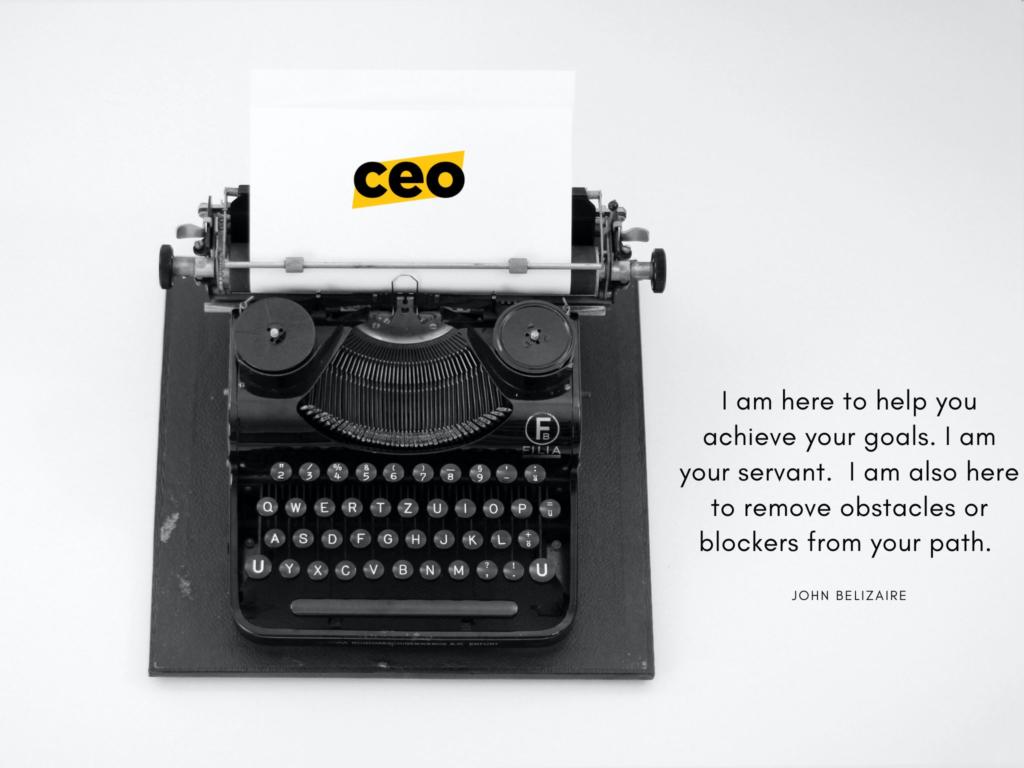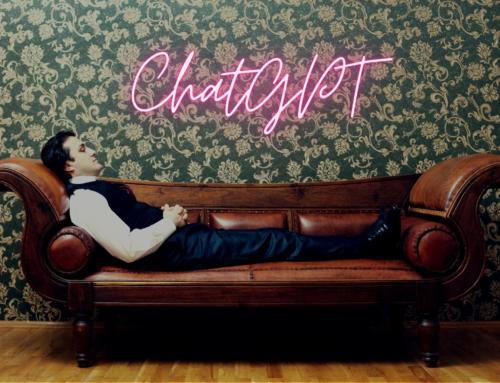When Claire Hughes Johnson joined Stripe, it already had 165 employees.
It was a fast-growing company with the beginnings of culture and two influential founders.
She was hired as COO to help the organization scale.
What’s one of the first things she did?
She wrote a User’s Manual.
In her interview with Elad Gil, author of High Growth Handbook, she shared what it was like in those early days…
When I came into Stripe, [user manual]. I wrote a document back at Google called, ‘Working with Claire.’ And when I first got to Stripe, I adapted it slightly, but it was pretty relevant. I shared it with everyone working with me closely, but I made it an open document. It spread pretty quickly through the organization. It made sense because I was new and in a leadership role, and people wanted to understand me. And then people started asking, ‘Well, why don’t we have more of these?’
It’s been a bit of viral, organic adoption, and now many people at Stripe have written their own guides to themselves. I’ve even had folks who are not managers but are on my team write me these guides to them. And it’s been super insightful. So I’m a huge fan.
Claire believes it’s a best practice. I think she’s right.
Imagine for a moment you are the CEO of a fast-growing company; how do you get people to know you fast? How do you help improve the communication with your direct reports?
The truth is, they will get to know you. But why take the chance on trial and error? Give them a shortcut.
A User Manual is like Waze™ for leaders.
As we entered the next growth phase at my new venture, I decided to take a page out of Claire’s playbook.
So, here is my User’s Manual…
Working with John: A User’s Manual
How I am wired
I think it is essential to learn how individuals on teams are wired.
This helps the team communicate better and build empathy.
I spend lots of time doing team-building activities focused on empathy growth and communication. I feel it’s hyper-important for a growing team. This helps the team jell and grow into a tribe.
Working with me
I am always on except for my times of solitude,
NO BS — give it to me straight.
I value transparency. Always.
I don’t like changing my Plan of Record too quickly — unless there is a good reason — it introduces risk and defocuses us.
I can get into the details, but I don’t favor it. I believe all my reports are the CEOs of their departments; I work on trust. I delegate to you because I trust your ability to execute. I expect you to ensure I have communicated the task clearly so you can execute it. Once a job is on your plate, I expect you to make it a reality. My role then shifts to a servant role.
I don’t micro-manage, but I can join your team where appropriate to serve as an individual contributor. This is a short-term thing, as it is not scalable.
Accountability is uber important. If you say you will do something, I expect you to do it. Don’t tell me at the last minute you won’t make it. It’s too late for me to help, negatively affecting the rest of the team.
I am here to help you achieve your goals. I am your servant. I am happy to help you problem-solve and think through a decision. I am also here to remove obstacles or blockers from your path. But I can only do that if you tell me you are blocked. I can’t read your mind, but I am always ready to help find solutions to your problems.
I am analytical, but under stress, I become hyper-collaborative. I bring the team together to work on hard problems.
I am learning about habits and have created a few personal ones, and I favor operating systems that do the same.
[Read: The Lily Pad Theory part of the Tribe Vibes series.]
I read a lot. So send me books or ideas always.
I am a lifelong learner, so I am always open to learning from anyone in the organization.
I can be stubborn sometimes in my convictions— call me out on it — but don’t expect an easy change in my mindset. It usually comes from a long history of bad experiences. But don’t read that as inflexibility. I can change my mind and have.
I value quality. So don’t send me a half-assed piece of work; expect me to accept it. You are better off having me serve as your editor and collaborator. So be open to constructive feedback.
I am not good with personal details— birthdays, kids, and family. But I have some habits that are helping me to get better. It’s not personal.
In my spare time, I like to write. It helps me to consolidate my learning, lower my anxiety, and improve my thinking. I find I solve problems better because of this ritual. Most of my musing can be found here.
I am fascinated with mental models and will be processing them for a while. Send me your favorites. And I encourage you to use them yourself. I am very logical in my thought process, and I enjoy lateral thinking a lot. Most of my success has been taking a contrarian or creative approach to problems.
I always take the blame. As CEO, it’s unavoidable. And, Incredibly important. I will say it’s my fault and apologize where I can. I try not to be defensive. I also find that it is just good leadership.
I enjoy healthy debate and disagreement among the team. It is vital to uncover the best ideas and solutions. But, once we decide, I expect everyone to disagree and commit — even if you disagree. And if we ultimately discover the decision was wrong, it’s a learning for the team, not an “I told you so.”
I believe pain is where learning happens. I have learned it the hard way. So I don’t fear pain or mistakes. But, I try to avoid them to be efficient with our precious time and resources. I believe it’s OK to make mistakes as long as they are original. That’s why I always seek the advice of experienced subject matter experts to help me make critical decisions— especially irreversible ones. You will see me trying to slow those types of decisions down.
I enjoy having fun with the team. I really do!
I don’t take myself too seriously. I am just human like you and need an outlet.
Cognitive biases scare the shit out of me because I have seen how deadly they can be to a company. We should all beware of them.
I believe everyone is wired a certain way because of their nurture, personal, and professional experiences — good and bad. I think the more we are all self-aware and share this openly with our colleagues, the better we’ll be able to work together.
If I ask you to leave the company, it will most likely be for one of the following reasons:
- The company has outgrown your abilities.
- You are failing in your role.
- I have no choice because of a disaster we are encountering.
- You are not a good fit culturally.
- We made a hiring mistake – you are the wrong person for the role, likely resulting in #2.
1:1s and check-ins are crucial meetings. But, they’re your meeting. I am not as good at keeping them as I would like. So, please hold me accountable and make sure I attend them regularly and come prepared.

Photo by Katrin Hauf on Unsplash
Things that make me grumpy
When team members don’t try to work out their differences through constructive communication and empathy before bringing their issues to me.
Assholes at work. We try to avoid letting them in. But on occasion, they do get in. I usually try to kill them like a roach in a dirty motel. :)
Poor execution. I enjoy putting a plan together and executing it to the best of my ability against that plan. The world does change, so I don’t feel the company is the plan, but… it’s hard to execute without a plan. Once we have an agreed plan of record. We have to put all our energy into executing the plan.
Poor communication. Communication is like the heartbeat of an organization. I try my best to over-communicate and do so clearly. I believe that 99% of problems on a team come from poor communication. So, I always end a meeting with, “OK, do we know what to do?” Or “is it clear?” I am not saying I am perfect, but I assume you understand the importance and will do your best.
People who speak like a preacher with no data. Note: sometimes that can be me — so call me out.
Highly anxious and uncontrollable executives. It’s contagious and can make me uncomfortable at times. This is a work in progress as it requires a lot of empathy. I tend to forget to acknowledge the emotion before offering advice.
Low-quality work. People who ignore the details drive me crazy. It’s in the details and preparation that we find success. Don’t rush it.
“People always harp on the importance of building trust and communicating — but they rarely say how. Write your user guide. Ask your team to reciprocate. That’s how.” – Jay Desai
What did they think?
So far, the feedback has been positive. I had one person who has worked with me in a previous company who said she wished all leaders did this – it’s so helpful.
I will be keeping this one up to date. So, check back.
Have you ever considered writing a user’s manual?
Feel free to use mine as a guide. Or here is another excellent resource from First Round Capital.


